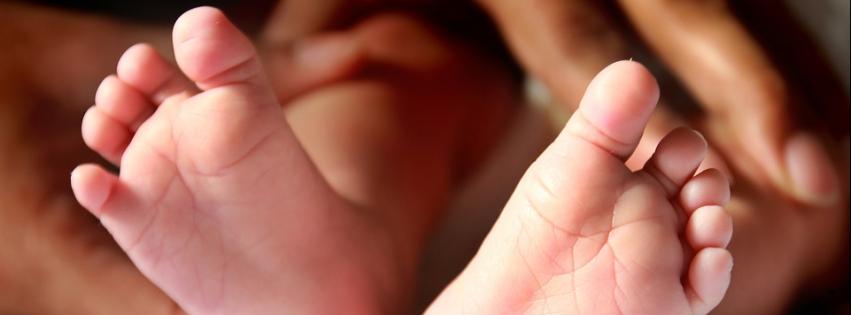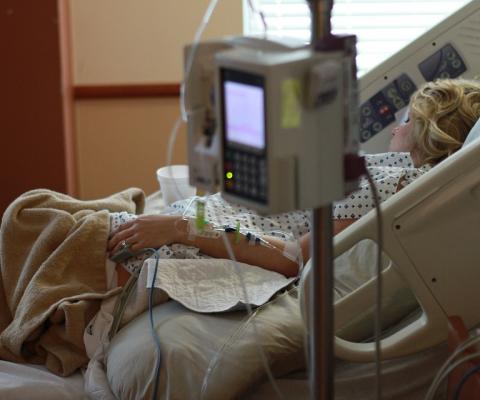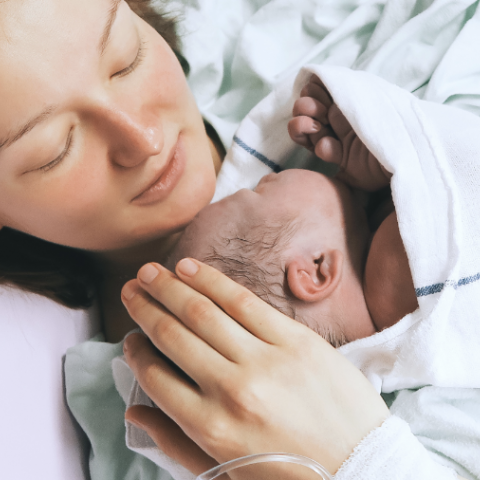Newborn screening is a nationwide public health initiative that tests newborn babies for a wide range of genetic and congenital conditions. While most babies are often born healthy, some babies are born with serious, but treatable medical conditions. These conditions can be present in anyone, even those without a family history of them. By screening babies just after birth, health professionals can identify and treat these conditions to prevent serious health and developmental problems.
Newborn screening usually happens 24-48 hours after birth and has three main parts: a blood test, pulse oximetry, and a hearing test.
- Blood test, or heel prick: during the blood test, the baby’s heel is pricked to collect a few drops of blood. The blood is collected on special filter paper. The filter paper, or newborn screening card, is then sent to the state laboratory for analysis.
- Pulse oximetry: pulse oximetry is non-invasive tests that quickly measures how much oxygen is in a baby’s blood and helps detect some heart problems.
- Hearing test: health professionals may use two different tests to screen babies for hearing loss: otoacoustic emissions (OAE) or auditory brain stem response (ABR).
Each year, 12,500 babies with serious but treatable conditions grow up healthy, thanks to newborn screening.
Newborn screening does not confirm a diagnosis, it simply alerts doctors that further testing is required. If a baby receives an out-of-range result, the baby’s healthcare provider or the state newborn screening program will notify parents about the follow-up process.
Some may be confused why newborn screening is necessary if a woman has already undergone prenatal screening. There is a difference between prenatal testing and newborn screening.
- Prenatal testing is a targeted form of testing, which means doctors are looking for specific diseases and conditions based on the mother’s age, the parents’ family and medical histories, and certain pregnancy specific concerns.
- Newborn screening tests a baby for more than 29 different conditions regardless of their family history or mother’s pregnancy.
Both are important, but they do serve different purposes.
Newborn screening is done in all 50 states, but the list of conditions doctors test for can vary. It is important that parents check which conditions their state test for before their baby is born. If you have questions about newborn screening, make sure to ask your doctor and check out the resources below.







